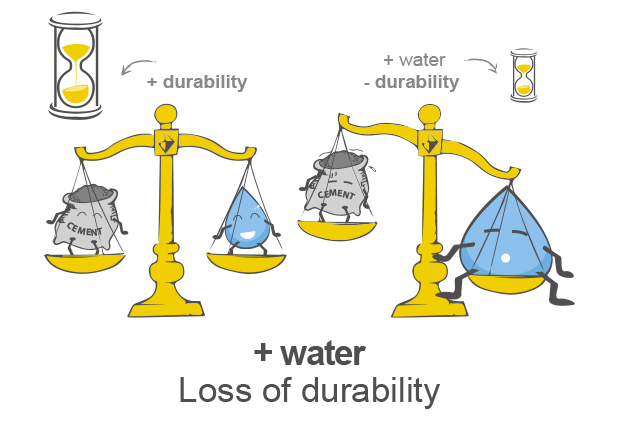Concrete is one of the most important building materials in the world. It is used in everything from roads and bridges to houses and skyscrapers. But what makes concrete so strong and durable? One of the most important factors is the water-to-cement ratio.

The water-to-cement ratio is the ratio of the weight of water to the weight of cement in a concrete mix. A lower water-to-cement ratio will produce stronger and more durable concrete. This is because less water means that there is more cement to bind the aggregate (gravel, sand, etc.) together.
The Science Behind the Strength
When added to cement, water starts a chemical reaction called hydration. This reaction causes the cement to harden and bind the aggregate together. The more water there is in the mix, the slower the hydration reaction will occur. This means that the concrete will take longer to harden and will not be as strong.
The Benefits of a Low Water-to-Cement Ratio
There are many benefits to using a low water-to-cement ratio in concrete. Some of these benefits include:
- Increased strength: Concrete with a low water-to-cement ratio is much stronger than concrete with a high water-to-cement ratio.
- Improved durability: Concrete with a low water-to-cement ratio is more resistant to cracking, shrinking, and freezing, and thawing.
- Reduced permeability: Concrete with a low water-to-cement ratio is less permeable to water and other liquids. This makes it more resistant to staining and corrosion.
- Lower cost: In the long run, using a low water-to-cement ratio can save you money. This is because concrete with a low water-to-cement ratio will last longer and require less maintenance.
How to Ensure a Proper Water-to-Cement Ratio
The water-to-cement ratio is one of the most important factors to consider when mixing concrete. If you are not careful, it is easy to use too much water. Here are a few tips for ensuring that you get the right water-to-cement ratio:
- Use a measuring cup or bucket to measure the water and cement.
- Mix the concrete thoroughly. This will help to ensure that all of the ingredients are evenly distributed.
- Do not add extra water to the mix once it has been started. This will weaken the concrete.
Conclusion
The water-to-cement ratio is an important factor in the strength and durability of concrete. By using a low water-to-cement ratio, you can ensure that your concrete will last for many years to come.